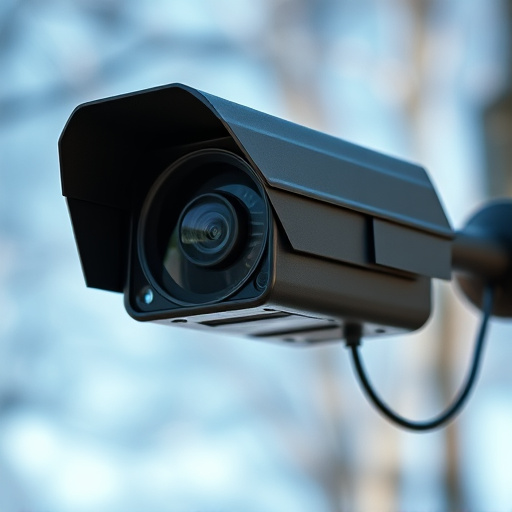Battery-powered covert nanny cameras offer landlords and tenants in rental properties a discreet surveillance solution, enhancing security while preserving privacy. Their long-lasting batteries and realistic designs enable strategic placement in common areas for tenant screening and property management. However, their use navigates legal boundaries set by privacy laws, requiring landlords to balance security with tenant expectations of privacy, and consult legal experts to avoid potential repercussions. Strategic placement behind decor, inside appliances, and in unseen areas ensures unnoticeable monitoring while adhering to legal constraints.
In today’s digital age, battery-powered covert nanny cameras have become a common tool for surveillance in rental properties. This article delves into the intricacies of understanding and navigating these secret surveillance spots. We explore legal considerations, provide insights on identifying potential hideaways, offer guidance on setting up and maintaining these devices, and discuss the ethical implications and privacy concerns that arise from their use. By arming yourself with this knowledge, you’ll be better equipped to make informed decisions regarding rental property surveillance.
- Understanding Battery-Powered Covert Cameras
- Legal Considerations for Secret Surveillance in Rentals
- Identifying Potential Hideaways in Rental Properties
- Setting Up and Maintaining Covert Nanny Cameras
- Ethical Implications and Privacy Concerns
Understanding Battery-Powered Covert Cameras
Battery-powered covert nanny cameras have become a popular choice for those seeking discreet surveillance solutions in rental properties. These small, unassuming devices offer a range of benefits, making them an attractive option for landlords and tenants alike. With their long-lasting batteries, these cameras can operate independently for extended periods, capturing footage without requiring constant power sources. This feature ensures continuous monitoring, especially in hard-to-reach or remote areas within the property.
Designed to be easily hidden, battery-powered covert cameras can be placed almost anywhere—from bookshelves and door frames to wall sockets and kitchen appliances. Their slim designs and realistic appearances make them virtually indistinguishable from everyday objects, allowing for a level of secrecy that is crucial for effective surveillance. This technology offers a practical solution for tenant screening, property management, and even personal safety, ensuring peace of mind in various rental scenarios.
Legal Considerations for Secret Surveillance in Rentals
In the realm of rental properties, the installation of secret surveillance equipment raises legal complexities that must be navigated carefully. While landlords may have legitimate concerns regarding tenant conduct and property safety, employing hidden cameras, such as battery-powered covert nanny cameras, comes with stringent regulations. Many jurisdictions have strict privacy laws that protect tenants from unwarranted intrusion into their living spaces. Landlords must adhere to these legal frameworks, ensuring any surveillance measures are proportional, justified, and conducted with the knowledge of residents.
The use of battery-powered covert nanny cameras, for instance, may be restricted to common areas or exterior spaces where tenants have no reasonable expectation of privacy. Installation in private residences without tenant consent can constitute a severe breach of privacy rights, leading to legal repercussions. It’s crucial for landlords to consult legal experts to understand the specific laws in their region, ensuring they maintain a delicate balance between property security and tenant privacy.
Identifying Potential Hideaways in Rental Properties
Identifying Potential Hideaways in Rental Properties
When it comes to rental properties, privacy can be a concern for both landlords and tenants. However, with battery-powered covert nanny cameras becoming increasingly accessible, identifying potential hideaways is more crucial than ever. These small, discreet devices can be easily placed in various hidden locations within a property, offering peace of mind without compromising aesthetics or comfort.
Look for common areas where privacy might be sought, such as behind pictures on walls, inside bookcases, under furniture, or even within kitchen appliances. Battery-powered cameras are designed to operate quietly and with minimal interference, making them ideal for unnoticeable surveillance. Regularly inspecting these spots can help uncover any hidden devices, ensuring a safe and secure environment for all involved parties.
Setting Up and Maintaining Covert Nanny Cameras
Setting up and maintaining covert nanny cameras, often battery-powered, involves a blend of technical skill and ethical considerations. These tiny devices, designed to be unnoticeable, can be strategically placed in common areas like kitchens, bathrooms, or even inside toys and household items. Their long-lasting batteries ensure continuous operation without drawing attention.
Regular maintenance includes checking battery life, ensuring clear video quality, and remotely accessing footage for any suspicious activity. Discretion is key; proper placement and management of these cameras adhere to privacy laws while offering peace of mind for worried parents or property owners.
Ethical Implications and Privacy Concerns
The use of battery-powered covert nanny cameras in rental properties raises significant ethical implications and privacy concerns. Tenants have a reasonable expectation of privacy in their homes, and the installation of these hidden surveillance devices without their knowledge or consent infringes upon this fundamental right. The presence of such cameras can foster an environment of mistrust and create a sense of insecurity for residents.
Additionally, the unethical use of battery-powered covert nanny cameras can lead to the violation of data protection laws and regulations. If personal information is captured by these devices without proper authorization, it could result in serious legal consequences for landlords or property managers. It’s crucial for both parties to understand the legal boundaries surrounding surveillance technology to ensure a harmonious and respectful living environment.
While battery-powered covert nanny cameras can serve as valuable tools for property management, it’s essential to navigate their use with ethical awareness and legal consideration. Understanding the potential hideaways in rental properties and maintaining open communication with tenants is crucial to striking a balance between security and privacy. Regularly reviewing and updating surveillance practices ensures a fair and transparent environment for all.
